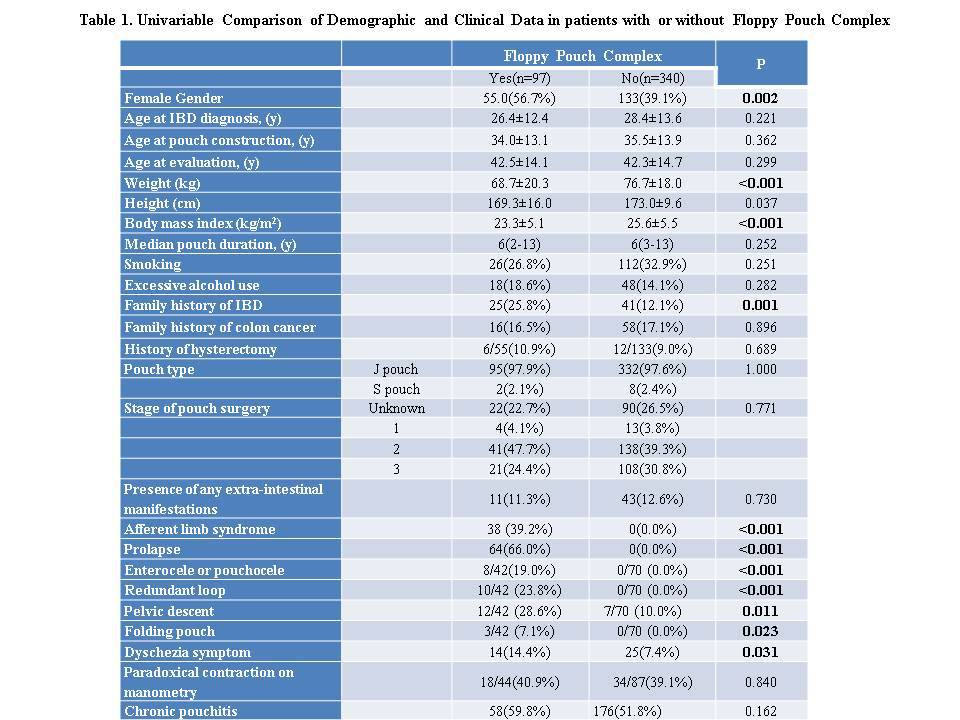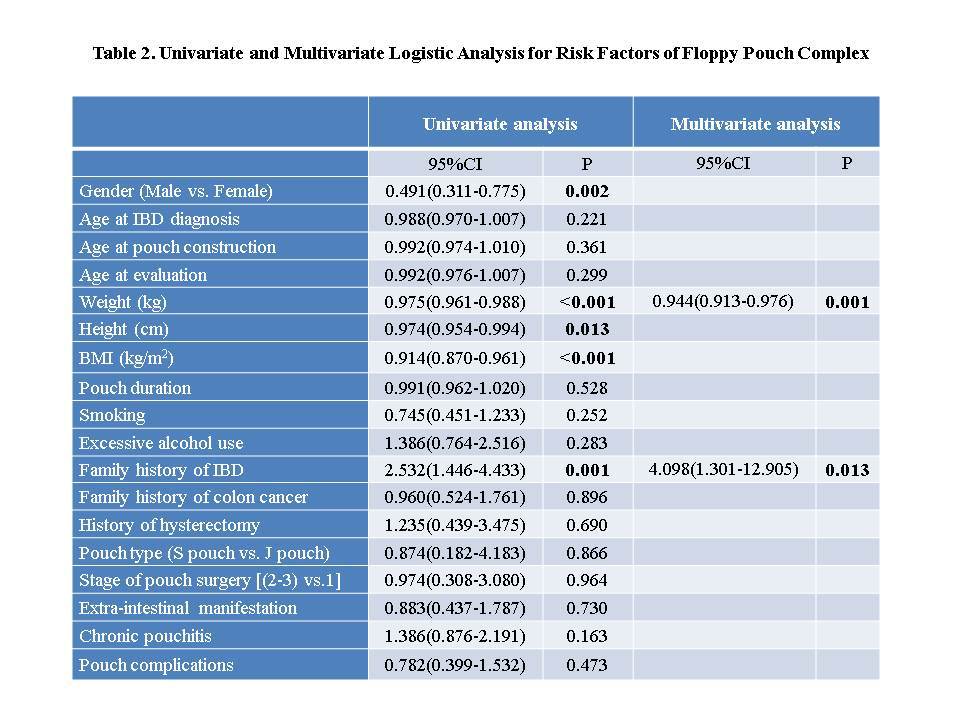
|
RISK FACTORS OF FLOPPY POUCH COMPLEX IN ULCERATIVE COLITIS PATIENTS WITH RESTORATIVE PROCTOCOLECTOMY. Freeha Khan*, Xian Hua Gao, Tracy L. Hull, Bo Shen Cleveland Clinic Foundation, Cleveland, OH Background: Restorative proctocolectomy with ileal pouch-anal anastomosis (IPAA) can be associated with a variety of complications, including, floppy pouch complex (FPC). FPC is defined as the presence of pouch prolapse, afferent limb syndrome, enterocele, redundant loop, and folding pouch on pouchoscopy, gastrograffin pouchogram or defecography. The main symptoms of patients with FPC are dyschezia, incomplete evacuation, and bloating. The aims of the study were to evaluate the relative frequency of each disorder of FPC and the risk factors. Methods: This case-control study included all eligible patients with FPC from our prospectively maintained, IRB-approved Pouchitis Registry from 2011 to 2017. The control group included the patients without any of the above conditions on pouchoscopy or the pelvic imaging. Univariate and multivariate analyses were performed to explore risk factors of FPC. Results: A total of 437 included patients, 97 (22.2%) had FPC and 340 (77.8%) had no FPC. Of the 437-case cohort, 188 (43%) were women, 360 (82.4%) were Caucasians, and 66 had family history of inflammatory bowel disease (IBD), with 427 (97.7%) having J pouches and 10 (2.23%) have S pouches and a median duration of pouch of 6 years. Compared with the group without FPC, the group with FPC had significantly lower weight and lower body mass index (BMI). The univariable and multiple variable comparisons between those with FPC and without FPC are listed in Table 1 and Table 2. Conclusion: A lower BMI as well as family history of IBD were found to be risk factors for FPC. A lower BMI may yield a diagnostic clue for patients with dyschezia or partial small bowel obstruction symptoms. These findings suggest that patients with the risk factors for FPC may require appropriate diagnostic modalities and close monitoring. Whether weight gain will benefit those patients remains to be investigated. 
Back to 2018 Posters |
|||||||||||||||
© 2026 Society for Surgery of the Alimentary Tract. All Rights Reserved. Read the Privacy Policy.
